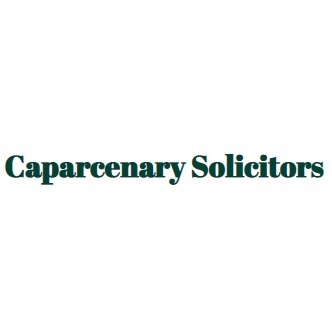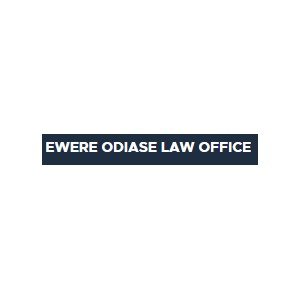Best Energy Regulatory Law Lawyers in Asaba
Share your needs with us, get contacted by law firms.
Free. Takes 2 min.
List of the best lawyers in Asaba, Nigeria
About Energy Regulatory Law in Asaba, Nigeria
Energy Regulatory Law governs the production, distribution, and consumption of energy resources within Asaba and across Nigeria. In Asaba, this area of law addresses issues arising from electricity supply, petroleum products, renewable energy, and compliance with government regulations. It sets the legal framework for energy companies, consumers, and governmental bodies to operate within the boundaries of environmental, economic, and safety standards. The main laws and regulations are implemented by federal and state authorities, with agencies such as the Nigerian Electricity Regulatory Commission (NERC) and the Department of Petroleum Resources playing critical roles. With Nigeria’s evolving energy landscape, especially the push for more reliable electricity and sustainable sources, Energy Regulatory Law continues to shape energy operations in Asaba.
Why You May Need a Lawyer
There are several situations where individuals, businesses, or organizations in Asaba may need an Energy Regulatory Law expert. If you are starting or operating an energy-related company, you must comply with licensing requirements and regulations. Landowners may face negotiations or disputes with energy companies intending to lay pipelines, set up power lines, or explore oil and gas. Consumers experiencing unfair billing, outages, or service disruptions with power distribution companies may need legal help to challenge these issues. Additionally, investors planning to enter the energy sector, or parties engaged in renewable energy projects, can benefit from lawyer guidance in navigating government processes. Legal representation is also necessary when dealing with disputes involving environmental harms, compensation claims, tariffs, or regulatory sanctions.
Local Laws Overview
Energy Regulatory Law in Asaba is influenced by both federal and Delta State regulations. The Electric Power Sector Reform Act (EPSRA) governs electricity matters and mandates the NERC to regulate the market and licensing. For petroleum, the Petroleum Act and The Nigerian Oil and Gas Industry Content Development Act ensure compliance with local content and safety requirements. Delta State aligns with these statutes and has offices for electricity and environmental protection that implement local policies. Tariff setting, consumer protection, licensing, and penalty enforcement are carried out by agencies operating in Asaba, while dispute resolution processes exist for grievances. There is also a growing focus on laws promoting alternative energy and the prevention of environmental pollution, making compliance vital for operators and consumers.
Frequently Asked Questions
What agency regulates electricity in Asaba?
The Nigerian Electricity Regulatory Commission (NERC) is the main agency regulating electricity supply, licensing, and tariffs in Asaba and throughout Nigeria.
Do I need a license to operate an energy business?
Yes, you need to obtain the relevant license from NERC for electricity or from the Department of Petroleum Resources for oil and gas operations before legally operating such businesses.
What should I do if I want to install a renewable energy system?
You should check with the Delta State Ministry of Energy and NERC for any compliance requirements, particularly if you wish to connect your system to the local grid.
How are electricity tariffs determined?
Tariffs are set under the regulation and approval of NERC, taking into account costs of supply, infrastructure, and various economic factors. Local input is sometimes factored in through public hearings.
What rights do energy consumers have in Asaba?
Consumers are entitled to fair billing, reliable service, and mechanisms to dispute inadequate service or overbilling with their distribution company or through NERC.
How are environmental issues in energy regulated locally?
Both federal and Delta State environmental agencies oversee compliance, including environmental impact assessments for energy projects, pollution control, and enforcement of remediation measures.
Can communities negotiate with energy companies operating locally?
Yes, communities have the right to negotiate land use, compensation, and benefit-sharing arrangements. A lawyer can help secure these rights and resolve disputes.
What legal steps can I take against unfair electricity disconnections?
You can file a formal complaint with your electricity distribution company and escalate unresolved cases to the NERC Forum Office or seek legal action through the courts.
Are there incentives for investors in renewable energy?
Yes, Nigeria offers various incentives such as tax holidays, duty waivers, and capital allowances to promote investment in renewable energy projects, subject to compliance with the law.
Who enforces compliance with safety standards in the energy sector?
Safety standards are enforced by the Department of Petroleum Resources (for oil and gas) and the Nigerian Electricity Management Services Agency (for electricity infrastructure).
Additional Resources
- Nigerian Electricity Regulatory Commission (NERC) - Main regulator for electricity markets, consumer rights, and industry operator licensing - Department of Petroleum Resources (DPR) - Regulates petroleum sector licenses, safety, and operations - Delta State Ministry of Energy - Handles local energy matters, renewable energy policies, and state regulations - Nigerian Electricity Management Services Agency (NEMSA) - Oversees technical standards and safety for electricity infrastructure - Consumer Protection Council (CPC) - Supports consumer rights, including those affected by energy services - Federal Ministry of Environment - Monitors environmental compliance for energy projects
Next Steps
If you require legal assistance in Energy Regulatory Law in Asaba, begin by identifying the specific issue or project. Collect relevant documents such as correspondence with service providers, contracts, or regulatory notices. Research and reach out to local legal practitioners skilled in energy law, as well as consult relevant regulatory agencies for guidance. Consider setting up a consultation to understand your rights, obligations, and possible legal remedies. Remember that early legal advice often prevents bigger problems, ensures compliance, and can provide representations during negotiations, disputes, or regulatory proceedings.
Lawzana helps you find the best lawyers and law firms in Asaba through a curated and pre-screened list of qualified legal professionals. Our platform offers rankings and detailed profiles of attorneys and law firms, allowing you to compare based on practice areas, including Energy Regulatory Law, experience, and client feedback.
Each profile includes a description of the firm's areas of practice, client reviews, team members and partners, year of establishment, spoken languages, office locations, contact information, social media presence, and any published articles or resources. Most firms on our platform speak English and are experienced in both local and international legal matters.
Get a quote from top-rated law firms in Asaba, Nigeria — quickly, securely, and without unnecessary hassle.
Disclaimer:
The information provided on this page is for general informational purposes only and does not constitute legal advice. While we strive to ensure the accuracy and relevance of the content, legal information may change over time, and interpretations of the law can vary. You should always consult with a qualified legal professional for advice specific to your situation.
We disclaim all liability for actions taken or not taken based on the content of this page. If you believe any information is incorrect or outdated, please contact us, and we will review and update it where appropriate.











